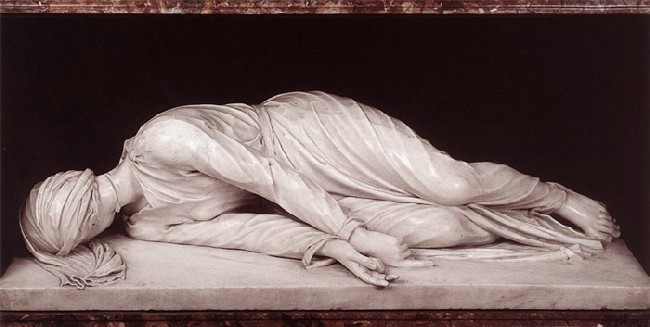I read a sentence containing the Latin word “suspiria.” (See footnote). Because I frequently come across texts with Latin words, I bought a couple of basic ecclesiastical (church) Latin books to try to help me.
When I read “suspiria” I had my first opportunity to look up a word in my new books. Some of my new books are about Latin phrases, or the Latin Mass — so the fact that those books did not have “suspiria” was not too surprising. The other book, the “Dictionary of Ecclesiastical Latin” by Leo F. Stelten had an entry for:
“suspiro — are: (first conjugation); sigh, draw a deep breath, desire, long for.”
My lack of Latin knowledge prevented me from knowing whether “suspiro” was the same as “suspiria.” So, I searched for “suspiria” on the Internet and finally found the Latin Lexicon web site which confirmed that the entry in the book was for the same root word — it does mean “a sigh.” And confirming the meaning of the word helped clarify the passage in the footnote in this blog and I knew what Jean Leclercq was talking about.
These are new monastic thoughts for me. It is passages like the one in the footnote that give me a better glimpse into monastic culture — a manner of living much different from the society and culture I see in the world — but one I can visit for short periods of time while listening and looking up.
___________________
Footnote
From “The Love of Learning and The Desire for God: A Study of Monastic Culture” by Jean Leclercq, page 58-59. The book is a series of lectures given to monks at the Institute of Monastic Studies at Sant’ Anselmo in Rome, Italy, in 1955.)
“THE GIFT OF TEARS
“Finally, [in discussing several elements of monastic culture — including ASCENT INTO HEAVEN and the FELLOWSHIP OF THE ANGELS] desire for Heaven inspires many texts on tears. The tears of desire, born of the compunction of love, are a gift from Our Lord; they are asked for and their meaning is interpreted. In a chapter On the Grace of Tears, Smaragdus has gathered together references taken from Holy Scripture, from the Lives of the Fathers, and from St. Gregory. Others have developed the theme in a more original manner. Such a one was, in particular, John of Fecamp whose works were to have great influence on all later spiritual literature. These "tears of charity," these "suave tears," engendered by the perception of God's sweetness, by the desire to enjoy it eternally, are accompanied by sighs, which are not signs of sadness, but of hopeful desire. In the Middle Ages, monasticism has a whole literature of suspiria.”
Blog Note:
Smaragdus was "A ninth-century monk of Saint Mihiel near Verdun, Smaragdus composed his Commentary after the 816 Council of Aachen imposed the Rule of Saint Benedict on all monasteries in the vast Carolingian Empire. His deep devotion to Christ and great reverence for Saint Benedict led him to encourage monastics to update the observance of the Rule to meet the needs of a society, period of history, and monks very different from those Benedict had known. He reminds readers today as well as then that monastic life is organized for the goal of attaining union with God by following Christ."
Monday, January 19, 2009
Looking up Latin. A Benedictine oblate blog
Subscribe to:
Post Comments (Atom)










In Eastern Christianity there is frequent reference to the "gift of tears" which is closely connected to the notion of "penthos" or compunction. We simultaneously weep with sorrow over our sins and with joy over their being forgiven. I think it's basically the same concept as what the western writers talk about.
ReplyDelete